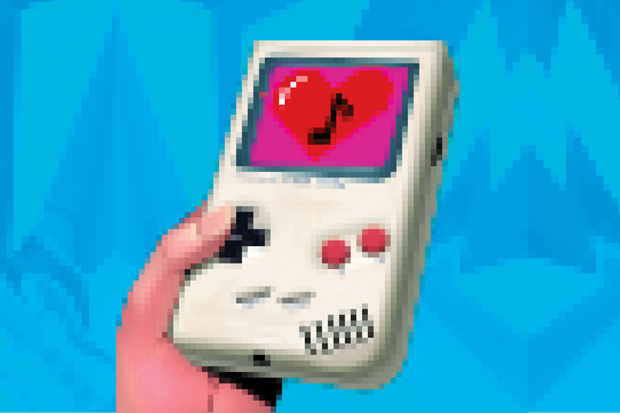“I had an idea to do a really big drum and bass version of the Ninja Turtles theme. Sort of as a joke,” he says. “But I went home and tried it, and it actually sounded pretty awesome. I thought it was balls out. It’s sort of a love letter to Ninja Turtles, along with some of my favorite electronic artists, like Pendulum.”
Chipping Away
Although he discovered chip music through Chibi-Tech, a former Silicon Valley chiptune artist who has since moved to Japan to work in the video game industry, Esquivel has been obsessed with re-creating the music of the video games he’s loved from a young age.
“When I was in seventh grade, I tried to make my own video game music, out of MIDI,” he says. “But I could always tell the NES [Nintendo Entertainment System] stuff was its own thing; I couldn’t get those tones. It wasn’t until way later, I’d say 2003 or 2004, that I found out about Nerdtracker. Nerdtracker was the first way that I could actually make music that sounded like the NES.”
Nerdtracker is an MS-DOS-based software designed to let musicians easily create songs that not only sounded like they came from a Ricoh 2A03—the 8-bit microprocessor used in the Nintendo Entertainment System—but were actually compatible with the NES.
The accessibility of Nerdtracker and subsequent similar programs led to a new wave of artists creating what has been called “NES music” and “8-bit music,” but is more commonly known as chiptune or chip music.
Musicians have long been sampling arcade games, but few imagined that by the 2000s electronic artists would be plugging Game Boys into sound systems at clubs.
Some chiptune still sticks close to the video-game sound, but more and more the range of what chiptune and chip-influenced music sounds like is expanding. L.A.’s Cristina Fuentes, under the name Wet Mango, uses Game Boys and synthesizers to combine chiptune and breakcore. Kool Skull plays chipthrash. Other acts are even harder to define.
Esquivel notes that many of the newer artists are younger than the games they’re basing their music on, or didn’t grow up gaming, making their motivation for making chiptune music very different than his.
“For me, personally, I think a lot of it is nostalgia,” he muses. “But as time goes on, and the genre evolves, it becomes less so. There are some people who have no background in video games who are making chip-style music. It comes out very different. A lot of people who’ve just come into it don’t use the instrumentation and style of the composers of the old games.”
.San Jose Rockage Festival Brings Old-School Gaming and Chip Music to Silicon Valley




